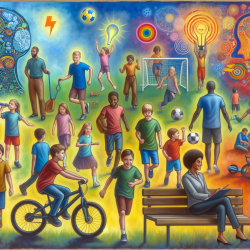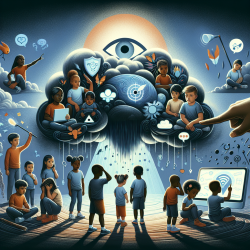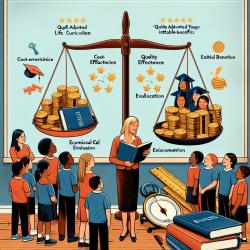The research article "Reimagining adult education and lifelong learning for all: Historical and critical perspectives" provides a comprehensive analysis of the evolving landscape of adult education. This blog aims to translate key findings from the research into actionable insights for practitioners in the field of online therapy and special education.
Key Findings and Their Implications
1. The Importance of Contextualization
The research emphasizes the need for adult education programs to be deeply embedded in local cultural and linguistic contexts. For practitioners, this means:
- Tailoring therapy sessions to reflect the cultural backgrounds of clients.
- Using culturally relevant materials and examples.
- Incorporating local languages into the therapy process.
2. Encouraging Lifelong Learning
Lifelong learning is highlighted as a crucial element for personal and professional development. Practitioners can foster this by:
- Encouraging clients to engage in continuous learning activities.
- Providing resources for self-study and further education.
- Offering workshops and seminars on relevant topics.
3. Integrating Indigenous Knowledge
The research points to the value of incorporating Indigenous knowledge and practices into adult education. Practitioners can:
- Learn about and integrate Indigenous healing practices into therapy sessions.
- Collaborate with Indigenous leaders and communities to enhance the therapy process.
- Promote the use of traditional knowledge alongside modern therapeutic techniques.
4. Addressing Global Challenges
The research underscores the role of adult education in tackling global issues such as climate change, social inequality, and health crises. Practitioners can:
- Incorporate discussions on these topics into therapy sessions to raise awareness.
- Encourage clients to participate in community activities addressing these issues.
- Provide resources and support for clients to engage in advocacy and activism.
5. Professional Development
The research highlights the need for ongoing professional development for educators and therapists. Practitioners should:
- Engage in continuous professional education and training.
- Stay updated with the latest research and best practices in the field.
- Participate in professional networks and communities of practice.
Encouraging Further Research
The research also calls for ongoing investigation into the evolving needs and challenges of adult education. Practitioners are encouraged to:
- Conduct their own research and share findings with the community.
- Collaborate with academic institutions to contribute to the body of knowledge.
- Stay informed about new research developments and incorporate them into practice.
To read the original research paper, please follow this link:
Reimagining adult education and lifelong learning for all: Historical and critical perspectives.










